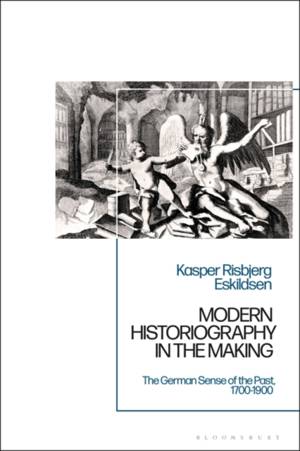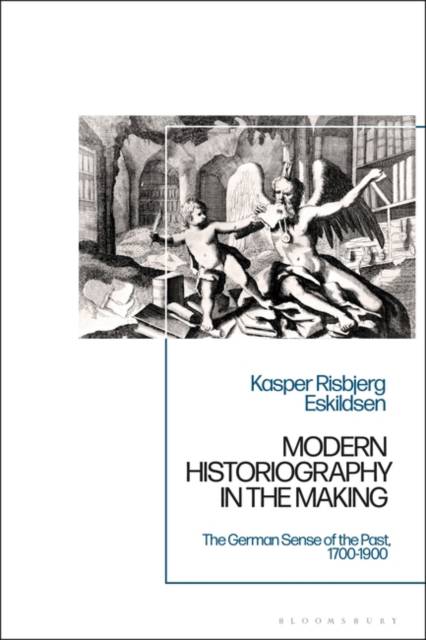
- Afhalen na 1 uur in een winkel met voorraad
- Gratis thuislevering in België vanaf € 30
- Ruim aanbod met 7 miljoen producten
- Afhalen na 1 uur in een winkel met voorraad
- Gratis thuislevering in België vanaf € 30
- Ruim aanbod met 7 miljoen producten
Zoeken
Modern Historiography in the Making
The German Sense of the Past, 1700-1900
Kasper Risbjerg Eskildsen
Hardcover | Engels
€ 203,95
+ 407 punten
Uitvoering
Omschrijving
At the end of the 19th century, German historical scholarship had grown to great prominence. Academics around the world imitated their German colleagues. Intellectuals described historical scholarship as a foundation of the modern worldview. To many, the modern age was an 'age of history'. This book investigates how German historical scholarship acquired this status.
Modern Historiography in the Makingbegins with the early Enlightenment, when scholars embraced the study of the past as a modernizing project, undermining dogmatic systems of belief and promoting progressive ideals, such a tolerance, open mindedness and reform-readiness. Kasper Risbjerg Eskildsen looks at how this modernizing project remained an important motivation and justification for historical scholarship until the 20th century. Eskildsen successfully argues that German historical scholarship was not, as we have been told since the early 20th century, a product of historicism, but rather of Enlightenment ideals. The book offers this radical revision of the history of scholarship by focusing on practices of research and education. It examines how scholars worked and why they cared. It shows how their efforts forever changed our relationship not only to the past, but also to the world we live in.
Modern Historiography in the Makingbegins with the early Enlightenment, when scholars embraced the study of the past as a modernizing project, undermining dogmatic systems of belief and promoting progressive ideals, such a tolerance, open mindedness and reform-readiness. Kasper Risbjerg Eskildsen looks at how this modernizing project remained an important motivation and justification for historical scholarship until the 20th century. Eskildsen successfully argues that German historical scholarship was not, as we have been told since the early 20th century, a product of historicism, but rather of Enlightenment ideals. The book offers this radical revision of the history of scholarship by focusing on practices of research and education. It examines how scholars worked and why they cared. It shows how their efforts forever changed our relationship not only to the past, but also to the world we live in.
Specificaties
Betrokkenen
- Auteur(s):
- Uitgeverij:
Inhoud
- Aantal bladzijden:
- 200
- Taal:
- Engels
Eigenschappen
- Productcode (EAN):
- 9781350271470
- Verschijningsdatum:
- 10/03/2022
- Uitvoering:
- Hardcover
- Formaat:
- Genaaid
- Afmetingen:
- 156 mm x 234 mm
- Gewicht:
- 453 g

Alleen bij Standaard Boekhandel
+ 407 punten op je klantenkaart van Standaard Boekhandel
Beoordelingen
We publiceren alleen reviews die voldoen aan de voorwaarden voor reviews. Bekijk onze voorwaarden voor reviews.








